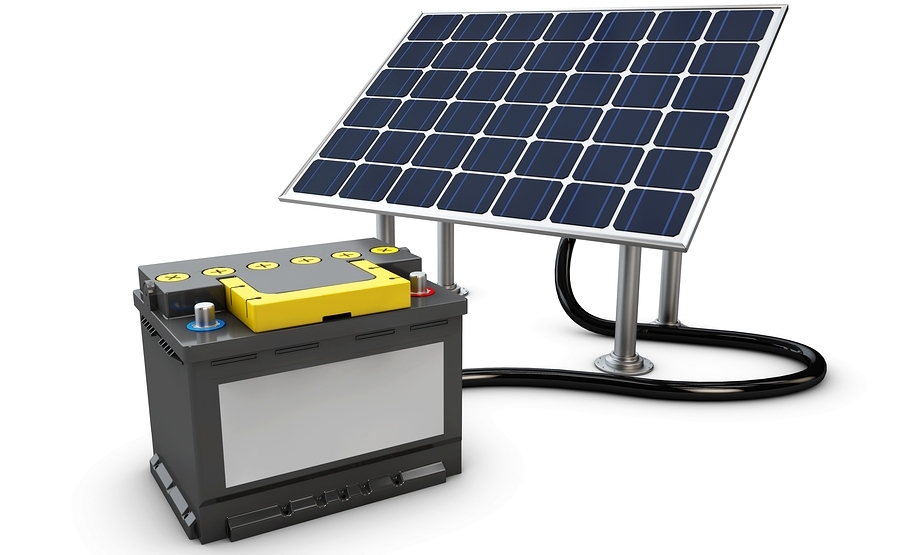
As solar energy becomes an increasingly popular choice for sustainable living, the importance of efficient energy storage solutions has grown. Solar power batteries are a critical component of solar energy systems, enabling the storage of excess energy generated during the day for use at night or during cloudy periods. This guide explores the benefits, types, selection criteria, and maintenance of solar power batteries to help you make an informed decision.
Benefits of Solar Power Batteries
Energy Independence
Solar power batteries allow you to store excess solar energy generated during the day, providing a reliable power source during the night or when the sun isn’t shining. This energy independence reduces reliance on the grid and ensures a continuous power supply, even during outages.
Cost Savings
By storing and using your solar energy, you can significantly reduce your electricity bills. Solar power batteries help you maximize the use of free solar energy, lowering your dependency on expensive grid electricity. Over time, the savings on utility bills can offset the initial investment in the batteries.
Environmental Impact
Solar power batteries contribute to a greener planet by reducing the need for fossil fuel-based electricity. By storing renewable solar energy, you decrease your carbon footprint and promote sustainable energy practices. This helps combat climate change and supports a healthier environment.
Backup Power
In areas prone to power outages, solar power batteries provide a crucial backup power source. They ensure that essential appliances and devices continue to operate during emergencies, enhancing the safety and comfort of your home.
Types of Solar Power Batteries
Lithium-Ion Batteries
Lithium-ion batteries are the most popular choice for solar energy storage due to their high energy density, long lifespan, and efficiency. These batteries are lightweight, compact, and require minimal maintenance. However, they tend to be more expensive than other types.
Lead-Acid Batteries
Lead-acid batteries have been used for decades and are known for their reliability and affordability. They come in two main types: flooded (wet) and sealed (AGM or gel). While lead-acid batteries are less expensive, they have a shorter lifespan and lower energy density compared to lithium-ion batteries.
Saltwater Batteries
Saltwater batteries are an emerging technology that uses saltwater as the electrolyte. They are environmentally friendly, non-toxic, and have a longer lifespan than lead-acid batteries. However, they are still relatively new and may not be as widely available or proven as other types.
Flow Batteries
Flow batteries use liquid electrolytes to store energy and are known for their scalability and long cycle life. They are suitable for large-scale energy storage systems but can be more complex and expensive to install and maintain.
Choosing the Right Solar Power Battery
Capacity
Battery capacity, measured in kilowatt-hours (kWh), determines how much energy the battery can store. To choose the right capacity, assess your household’s energy consumption and storage needs. A higher capacity battery can store more energy, providing longer backup power during outages.
Efficiency
Battery efficiency refers to the amount of energy that can be retrieved from the battery compared to what was stored. Look for batteries with high round-trip efficiency (typically above 85%) to ensure minimal energy loss during storage and retrieval.
Lifespan
The lifespan of a battery is measured in cycles, with one cycle representing a full charge and discharge. Choose batteries with a long cycle life to ensure durability and cost-effectiveness. Lithium-ion batteries typically offer the longest lifespan, with some models rated for over 10,000 cycles.
Depth of Discharge (DoD)
Depth of Discharge indicates the percentage of the battery’s capacity that can be used without damaging it. Higher DoD means you can use more of the battery’s capacity before recharging. Aim for batteries with a DoD of 80% or higher for optimal performance.
Warranty
A good warranty provides peace of mind and protection for your investment. Look for batteries with comprehensive warranties that cover both performance and defects. A longer warranty period indicates the manufacturer’s confidence in the product’s durability and reliability.
Maintenance Tips for Solar Power Batteries
Regular Monitoring
Keep an eye on your battery’s performance by regularly monitoring its state of charge, voltage, and temperature. Many modern batteries come with monitoring systems or apps that provide real-time data and alerts for any issues.
Proper Ventilation
Ensure your battery storage area has adequate ventilation to prevent overheating. Batteries generate heat during charging and discharging, so proper airflow is essential for maintaining optimal performance and safety.
Cleaning and Inspection
Periodically clean the battery terminals and inspect for any signs of corrosion, damage, or leaks. Use a mixture of baking soda and water to clean the terminals and prevent corrosion. Address any issues promptly to avoid potential problems.
Temperature Management
Batteries perform best within a specific temperature range. Avoid exposing them to extreme temperatures, which can reduce their lifespan and efficiency. Consider installing a temperature-controlled environment or using thermal management systems if necessary.
Professional Maintenance
For complex systems or when in doubt, seek professional maintenance services. Experts can perform detailed inspections, troubleshoot issues, and provide necessary repairs or upgrades to keep your battery system running smoothly.
Conclusion
Solar power batteries are essential for maximizing the benefits of solar energy systems. They provide energy independence, cost savings, and environmental benefits while ensuring a reliable power supply. By understanding the different types of batteries, choosing the right one for your needs, and following proper maintenance practices, you can enjoy a sustainable and efficient energy solution for your home. Embrace the power of solar energy and enhance your energy resilience with solar power batteries.























